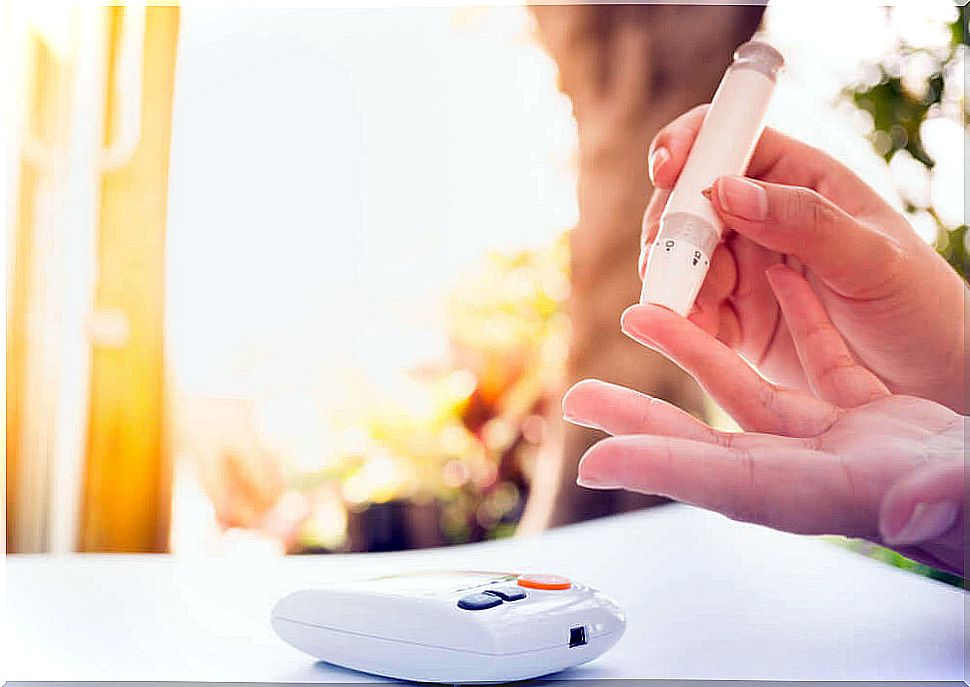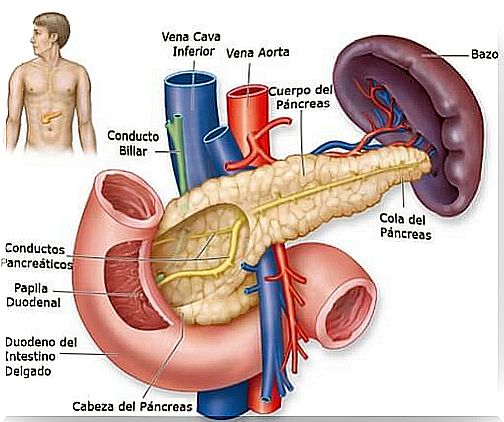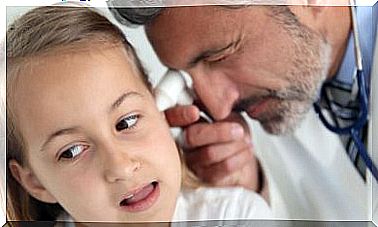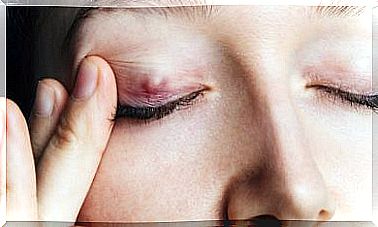What Are The Symptoms Of Hypoglycemia?
The symptoms of hypoglycemia can be confused with other clinical pictures when the drop in blood sugar is mild. In fact, it may even happen that eating a food rich in carbohydrates goes unnoticed.
We consider that there is hypoglycemia when the value of glycemia, that is, of sugar in the blood, falls. Specifically, hypoglycemia requires less than 70 milligrams per deciliter (mg / dL) of blood glucose to be considered as such.
The causes are varied and we will see them later, but it is interesting to first understand how the body acquires glucose. The mechanism of obtaining explains how, when failing at some point, the symptoms of hypoglycemia occur.
The importance of glucose in the body
The human being takes glucose from food. They do not necessarily have to be all sugary or sweet foods. The body extracts glucose molecules from fruits and vegetables as well.
To be effective, glucose must enter the cells of the tissues. There it will be transformed into energy fuel for the functions of each cell. This process of cellular entry is regulated by insulin.
Insulin is a hormone secreted by the pancreas. It regulates the access of the sugar that circulates in the blood to the interior of the cells. It is the hormone that fails in individuals with diabetes.
The insulin antagonist is glucagon, another hormone made in the pancreas. Glucagon’s task is to stimulate the liver to break down stored glycogen and circulate glucose in the blood. Broadly speaking, we would say that insulin lowers blood glucose and glucagon increases it.
In this hormonal game, added to other factors, the symptoms of hypoglycemia may appear. It will be mild or severe depending on the amount of glucose that continues to circulate in the blood.
Symptoms of mild hypoglycemia
Many times, when symptoms of mild hypoglycemia appear, they go unnoticed. There is a drop in blood sugar that is not powerful enough to severely affect vital organs.
Among the symptoms we have:
- Profuse sweating
- Headache or headache.
- Dizziness, motor incoordination and vision disturbances.
- Drowsiness. Sometimes, more than a dream, a difficulty in concentration is expressed, as if the mind were dull.
- Muscle tremors

Symptoms of severe hypoglycemia
In the extreme, when hypoglycemia is significant and blood sugar levels have dropped too low, the symptoms are:
- Seizures: usually in the form of intense muscle movements, such as jerks.
- Fainting with loss of consciousness: which can last a long time and not recover immediately.
- Inability to feed: sometimes as a symptom of isolated hypoglycemia and other times as part of seizures or fainting.
Causes of hypoglycemia
There are five causes that can be behind the symptoms of hypoglycemia. They are generally preventable causes, except for insulinoma, although the latter is rare:
- Diabetes: paradoxically, although it is a pathology that increases blood sugar levels, it is the most common cause of hypoglycemia. This is evidenced by a study published in Home Healthcare Now . This comes from the medication that is used to treat diabetes. At the beginning of treatment, until the appropriate dose is found, or due to a change in routine by the diabetic, blood glucose may drop sharply.
- Alcohol: in alcoholic people the symptoms of hypoglycemia are not rare, according to a study published in the Habanera Journal of Medical Sciences . The underlying mechanism is the inhibition that alcohol causes the release of glucose by the liver. This is often combined with the long periods of fasting of the alcoholic who does not eat enough or at the right times.
- Prolonged fasting: if you go long periods of time without eating, no matter how much glucagon acts at first, the time will come when it is insufficient. Diseases such as anorexia nervosa are the cause of prolonged fasting. Without food there is no glucose entry into the body.
- Medications: beyond the drugs used for diabetes, there are other medications that have hypoglycemia among their adverse effects. We can mention quinine – from the treatment for malaria – or gatifloxacin – an antibiotic.
- Insulinoma: there is a tumor of the pancreas that is formed by the overgrowth of insulin-generating cells. Obviously, as there is more insulin in the body, hypoglycemic episodes appear. Still, research confirms that this is a rare cause.

What to do with hypoglycemia
The symptoms of hypoglycemia, as we saw previously, can be mild or severe. Based on that classification, it will depend on how we can act in each case.
If the hypoglycemia is mild, the most efficient measure is to provide fluids that give the person who suffers from it rapid glucose availability. Among these preparations we have a glass of water with two tablespoons of sugar, a drink of a sugary drink such as soda, or about two hundred cubic centimeters of fruit juice, among others.
On the other hand, in severe hypoglycemia, food cannot be provided to the patient because he will be unconscious or convulsing. For these cases, medical professionals apply the hormone glucagon in an artificial injectable form.









